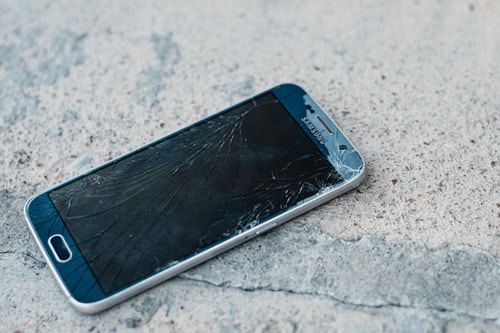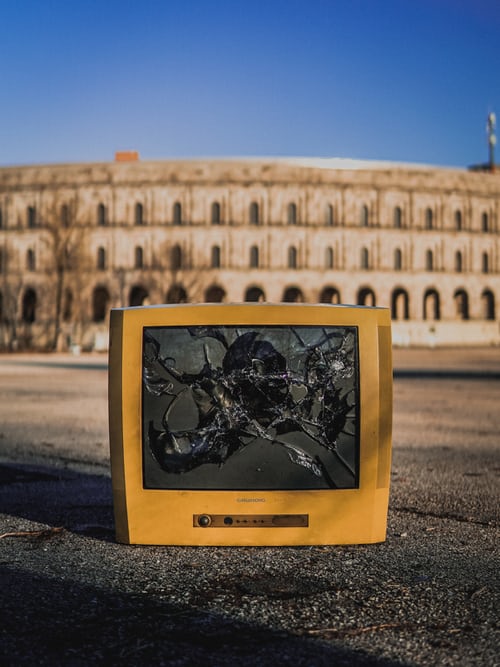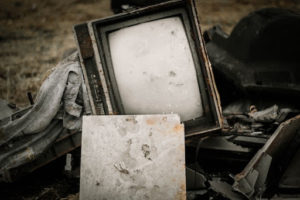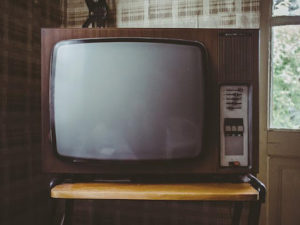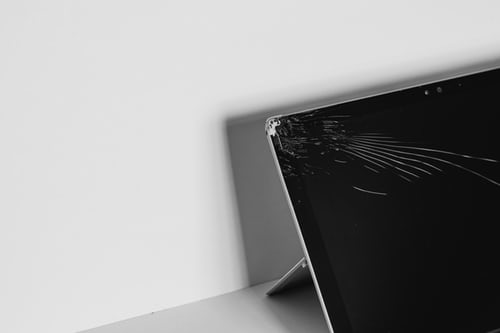How to Recycle Old Electronics
When your older electronics start giving out or you’re just looking for an upgrade, you’re probably focused on what you’ll buy next rather than what you already have. Buying new technology and getting the latest models can be an exciting time. But once you get your new devices, what are you supposed to do with the old ones? Many people aren’t sure what they’re supposed to do with old tech products and they could end up laying around the house collecting dust.
Recycling tech has become increasingly important not only to protect our landfills from the toxic chemicals that can be used in tech products, but also to repurpose materials we may have a limited supply of. Ajay Kochhar with Li-Cycle is no stranger to tech recycling. “Battery supply constraints are beginning to emerge due to the delay in li-ion production because raw materials are becoming short in supply, which makes recycling critical in order to avoid a supply chain shortage.”
Unfortunately, many of our old devices end up as e-waste as well. These devices are tossed into landfills to waste away and create toxic chemicals that can seep into the soil and endanger the surrounding areas. Because of this, it’s extremely important to learn about how to safely recycle your old electronics. At Newtech Recycling, we can help make sure that everyone in New Jersey, New York, and Pennsylvania has a reliable place to safely recycle their old electronics.
Do Electronics Need to be Recycled?
Everyone should be recycling their old electronics. Recycling centers are available all over the country, so there is no reason for harmful e-waste to end up in landfills. For many Americans, recycling isn’t simply a nice thing you can do for the environment. Many states have made it a law to responsibly recycle your old electronics and disposing of them incorrectly could leave you facing a huge fine. This includes not only our tech devices like cell phones and computers, but household appliances like refrigerators and microwaves as well. Even if your state doesn’t require you to recycle your electronics, this is something you should be doing to help prevent more e-waste from entering landfills. Not only is this detrimental for our environment, but it also wastes valuable parts in our devices that could be reused.
Where Do You Recycle Electronics?
Recycling your old electronics involves a few extra steps than throwing your plastics water bottles in a bin. If you have smaller devices, like laptops and cell phones, that you can easily pick up and put in the car, you can take your electronics straight to your local center to have them take care of it. However, if you have large appliances at home or have multiple devices and appliances in an office space, doing this on your own isn’t always an option. If this is the case for you, there are still ways for you to ensure that you can get your electronics recycled properly. Many recycling centers give you the option to come to wherever you can and pick up your appliances if you’re unable.
Before you take your electronics anywhere to be recycled, do our research to make sure the place you’re going is reliable and it’s somewhere you can trust that they follow all regulations for recycling electronics. You should also make sure that you’ve saved any important files on your computer somewhere safe so that you don’t lose anything after recycling it. For your protection, have all of your data wiped from your devices before recycling them.
What if Your Old Electronics Still Work?
Many of us might buy new electronics as a treat when our old ones work perfectly fine. Old electronics are often still in great working condition, so you might not want to take them to be recycled when they’re still usable. If you have electronics that you don’t want but are in good condition, you may be able to donate them. Your local recycling center may take electronics like this and donate them to different charities. If the recycling center near you doesn’t handle donations, you should still be able to find a local charity that is open to receiving electronics as donations. We spoke to Daniel W. Rasmus with Serious Insights who told us “If they still work but don’t have resale value, I will donate them toThe Boys and Girls Club.” This is just an example of one charity that will accept old electronics but there are a ton more who can utilize your old tech products.
10 Things You Should Know About Recycling Electronics
Electronics are among some of the worst products to end up in landfills. In the United States, we’ve become one of the largest producers of electronic waste, or e-waste, in the world. This type of waste is incredibly harmful to the environment, not to mention a waste of valuable resources. There are already millions of tons of e-waste in landfills, but we can do something to help keep electronics out by recycling them.
We’re all familiar with the importance of recycling things like single-use plastic, but many aren’t aware of how they recycle more things in their life, like electronics. As electronics become more prevalent, being well-informed is more important now than ever.
1. What Counts as E-Waste?
Before you recycle anything, you might be wondering if the devices you have would be considered e-waste. Many people know that large appliances, like washing machines, have to be recycled properly, but might not be aware of how many things should be recycled as e-waste. Anything battery-powered, as well as anything that has circuit or electric elements. This could be anything from cellphones to refrigerators.
2. Where Does E-Waste End Up?
The overwhelming majority of electronics end up in landfills rather than being recycled. In the United States, most of the electronics we send to landfills end up polluting Asian countries. When e-waste does wind up in landfills, it will long outlast us. Many electronic devices will last for over a million years after being thrown away. E-waste also makes up the majority of toxic waste in the world.
3. Where to Recycle Your Electronics
If you have electronics you’re planning to get rid of, there are only certain places you can take them to be properly recycled. This isn’t like your normal recyclables where you can simply put them in a bin on the curb to be taken away. You’ll have to find a local electronics recycling center that you know will follow all the guidelines to have them recycled responsibly. If you have large or multiple electronics to be recycled, you might be able to arrange to have your recycling center come to you to have them removed.
4. Electronics Contain Toxic Chemicals
When you have phones, computers, and other tech products lying around your house, you probably don’t wonder much about what’s in them. Because of this, many people aren’t aware of the alarming amount of toxins their household and business electronics contain. When they’re in our homes and well-taken care of, the elements and chemicals inside of electronics have no threat, it’s only once they waste away in landfill or are incinerated that they become harmful. These toxins can eventually soak into the ground and contaminate nearby water that can be incredibly expensive and difficult to clean up.
Sarah McConomy with SellCell gave us an example of this. "When electronic waste is improperly disposed of and ends up in landfills it can cause damaging effects to the environment and our health. Cell phones, for instance contain harmful toxins including lead, mercury, arsenic, cadmium, chlorine and bromine. If disposed of in landfills these toxins can be absorbed into the air, ground and water supply and over time cause harmful effects to the ecosystem and the environment."
5. It Could Be Illegal to Not Recycle Electronics
Some people might think that they’re simply doing the greener thing by recycling their electronics instead of throwing them out. While this takes better care of the environment, it isn’t as optional as some people might think. In certain states, it’s illegal to throw away electronics. If you do throw away your electronics in these states, you could be facing a hefty fine. Even if it isn’t illegal in your state, you should always take the appropriate steps to recycle your electronics.
6. Some Electronics Might Be Able to Be Donated
If your electronics are still in good shape, but you just wanted an upgrade, you don’t necessarily need to recycle the entire thing. For electronics that are still working like they should, you might be able to donate them for someone else to use. Where you would normally take your electronics to be donated might offer services that can help you donate them. This helps keep more electronics from ending up in landfills and requires less work to have more electronics made.
7. You Need to Wipe Your Data
Before you recycle any electronics, it’s extremely important that you have any data on your devices wiped. Going through and manually deleting files isn’t enough to ensure that no one can find your personal and private data. Even if your device is no longer usable, your important data can still be extracted. To securely wipe data, you need to bring it to professionals who can handle destroying data before the device is recycled. Whether they’re being donated or recycled, keep yourself or your business safe and secure by ensuring nothing is left on your electronics.
8. Find a Way to Save Important Files
The last thing you want is to get rid of a device and realize days, weeks, or months later that you left something important on it with no backup. You can use whatever your preferred way of backing up your files is, whether it be saving it right to the cloud or transferring it to a physical drive. Before recycling your old electronics, make sure you go through them thoroughly to save any information you have on it, like music, pictures, documents, and contacts.
9. What Recycled Electronics Can Be Turned Into
The electronics we use on a daily basis contain expensive elements and components that we might not realize are there. Obviously, most electronics have plastic and glass that we’re already familiar with being recycled, but did you know they might also have elements like silver and gold? Because of this, recycled electronics can be later be turned into a number of different items, including being used to create new electronics. Not only that but many times you can actually make money on recycling tech and use that toward the purchase of something new. We spoke with Joanie Demer, co-founder of The Krazy Coupon Lady, who told us how she uses the money from her recycled tech to purchase new tech. "One of the great benefits of recycling tech is that it can save you money on new tech."
10. Do You Have to Pay?
Like the recycling you have for your home or business, you’ll also have to pay a small fee most of the time when you recycle electronics. Properly recycling the components of electronics and ensuring they don’t end up in landfills is an expensive task, so it's often necessary to pay for these services. When it comes to reducing the amount of e-waste polluting our environment, the cost to recycle is more than worth it. The cost of having your old electronics recycled is also far less than a fine you’d get for disposing of them incorrectly.
Don't Throw Out Your Old TV Set - Recycle It
There are hundreds of millions of televisions in households across the United States. Many of these are actively used, but others are obsolete models people do not need or want anymore. The question for the owners of those TVs then becomes: what to do with these old TVs?
When your old tv set is no longer useful to you, you may wonder what to do with it. If the TV still works properly, you can consider donating it. However, if your old tv set is broken, you must dispose of it properly.
What to do With Your Old TVs
Getting rid of an old TV is more difficult than disposing of regular trash because it is considered e-waste and will pollute the environment. When people don’t want to learn how to dispose of an old TV properly, they often keep them in their homes for years beyond their useful lives, or, unfortunately, they disregard e-waste laws and throw out their televisions in the regular trash. They also illegally dump them on the side of the road or elsewhere.
Whether you throw out your old TVs or dump them anywhere at all, the fact is that you are harming the environment. You might wonder how this is possible. Televisions, especially older models, contain heavy metals that can leach into soil and groundwater and pollute ecosystems nearby.
It is for this reason that we at Newtech Recycling are so enthusiastic about electronic recycling in New Jersey, Pennsylvania, and New York. We know that what we do helps clean the environment for future generations. We are also experts in our industry, and we feel it is our responsibility to apply our knowledge to improve our part of the planet.
We believe that the best way to dispose of an old TV is to recycle it.
Why You Should Never Take Your Old TV Set to the Landfill
If you have never researched the life cycle of a television set or other types of large electronics, you might find it interesting to know what happens to TVs after they have outlived their use. The fate of televisions is really up to their owners, of course, so we will discuss the landfill and e-waste recycling scenarios to leave nothing unexplained.
Throwing away your old televisions will sentence them to the destination of most other garbage: the landfill.
Landfills are sites where large amounts of trash are physically compacted and stored. Most municipal solid waste–the kind that is collected curbside from households and dumpsters across the country–is first placed on an area of ground lined with clay and a thin sheet of plastic. The waste is packed into hills as tightly as possible. When an area of a landfill can hold no more waste, the hills are sealed off from the air with clay and another plastic sheet. This is then covered with dirt and vegetation. In newer landfills, the dirty fluids called leachate that seep out of the trash–particularly from e-waste–are collected in pipes and handled as wastewater.
However, the garbage in older landfills is not quarantined from the environment. That is because leachate can flow directly into the earth due to the absence of those clay and plastic liners.
Why is this a problem, as in the case of old TV sets? It is because televisions produce leachate composed of multiple heavy metals that severely pollute the earth when they break down out of the devices and enter the ground. Depending on the age of the TV, those metals can include cadmium, lead, and mercury. Human or animal exposure to these metals–from polluted groundwater, for instance–has been linked to cancer.
Landfills are not inherently bad; after all, our garbage has to go somewhere. The problem lies in what we choose to place in those landfills. So, what can you do with an old TV? As an alternative to throwing it into a landfill and harming the environment, Newtech Recycling suggests recycling your old TV with us!
Why Recycling Old TVs is Better
Recycling your televisions with an electronic recycling company near you is a much better choice than the landfill because those entities know how to properly remove the harmful materials in your e-waste before disposing of the rest.
At our recycling facility in New Jersey, we operate equipment that safely separates heavy metals from the other components of a TV. We then organize all the materials we pull out of those devices, so we know what we have–aluminum, glass, copper, etc.
Any safe materials we derive from your old electronics are returned back to the raw-goods market, where they are recycled to be used again in production. We then dispose of the harmful metals and other elements safely so they cannot be released into the environment. Our electronic recycling process is immediately more attractive than casting old TV sets into landfills only to watch them leach metals into the ground.
On top of that, Newtech Recycling also likes to make your e-waste recycling convenient for you. If you have a collection of old TVs in your home or office that you need to get rid of, we can come to you to pick them up and bring them to our recycling facility.
We have the means to recycle your e-waste, and you will have peace of mind knowing that you disposed of your old televisions and other electronics responsibly. Furthermore, when you recycle your old TV, you guarantee the parts will be salvaged and eventually reused in other electronics, thereby helping to save resources all around.
What to Do with an Old TV in New Jersey and Beyond
Newtech Recycling is a leading e-waste recycling company in New Jersey and the Tri-state area. We do our part to reduce e-waste being dumped into landfills. That is our mission, and it is what drives us.
When it comes time to decide what to do with your old TV, you must consider the environmental impact seriously. Televisions contain heavy metals that have no place in our soil or groundwater. You can help to prevent this kind of pollution by contacting an electronics recycling company to haul away your obsolete TVs and dispose of them properly.
If you live in New Jersey, New York, Pennsylvania, or Connecticut, contact Newtech Recycling today to get a quote on your TV recycling and help build a better future for us all.
Beyond Expectations
Newtech Recycling’s (All-Inclusive) White Glove Service Package
Do you ever find yourself in the storage closet at work and being overwhelmed by the amount of items
that are unused, out-dated and broken? It’s a common occurrence in businesses of all shapes and sizes.
Most employees seldom have the expertise to determine if it’s time to get rid of something nor do they
have the authority to make such a decision.
Imagine working with a provider that can offer up-to-date suggestions and recommendations pertaining
to your inactive inventory of items. A provider that truly understands the vital necessity of space,
organization and revenue opportunities. That’s just one part of Newtech’s recently enhanced service
package that’s working to distance them from their competition.
At Newtech Recycling, they offer value-added services like these at every visit. Their multi-faceted
teams of experts completely understand the waste versus revenue challenges that firms face every year.
They know exactly what to recommend and how to guide businesses accordingly. Newtech Recycling
confronts these storage room dilemmas every day and nothing is beyond their scope of expertise.
Let’s face it, most e-waste pick-ups in today’s world consist of fly-by-night operations that source the
cheapest logistics providers to haul-a-way only a certain category of electronics. Companies often find
themselves at the mercy of lengthy lead and arrival times. These time-crunched haulers then simply
back up to dock doors and load equipment that had to be cautiously recorded, handled and palletized
by company staff.
Not only is Newtech light years different, they are also on a completely separate playing field. First, they
begin by providing free on-site estimates. This allows their clients to fully understand each and every
service option that is available to them. They then customize a service that is specific to their clients’
needs. Whether it’s a full scale corporate clean-out, an on-site hard drive shredding project or a simple
pick-up of an old printer, lab equipment or medical device, you can be assured that Newtech does it all.
Their fully trained and certified recycling teams offer a hands-on approach at every stop. Why should
their business partners have to risk injury, theft and labor hours with tasks that should be conducted by
certified & trained professionals? That’s just who Newtech is and what they excel at. Each member of
their team fully embraces everything that is electronics recycling and their business model is a
framework for a green culture that is clearly evident and second to none.



